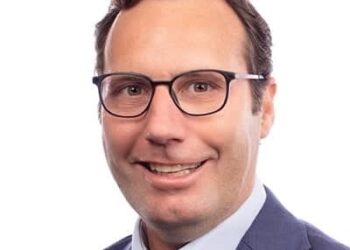In a 2015 survey, only 24 per cent of Australians said they trusted financial planners. Since then, ASIC has entered into 62 enforceable undertakings (EU). Unfortunately, this small fraction of the industry – and the poor reputation they have created when it comes to trust and confidence – is having a disproportionate and unfair impact on the rest of the planning community.
Consider these stats:
- For every client who bothers to complain, 26 others remain silent;
- Assuming each EU has been based on only one complaint and this ratio is valid across all complaints, that’s over 1,600 dissatisfied clients for these advisers; and
- Given dissatisfied clients tell an average of 16 people about their poor experience, this could equate to over 25,000 negative conversations about the industry during this time.
It’s no wonder trust is so low.
It doesn’t help that the average click-through rate on headlines with negative superlatives is a staggering 63 per cent higher than that of positive ones. Bad news sells. Good news stories aren’t dramatic, so they aren’t that entertaining. How often does a conversation start with “Oh, you’ll never believe the great experience I had with X”? Add to this the fact that people are generally secretive about their finances. It’s a taboo subject.
As an individual, I’m sure you’re doing what you can to reverse this stigma. You’re probably collecting reviews or ratings from your clients to show prospective clients that they can trust you. This works at a granular level, in that it benefits your individual reputation and practice. When someone seeks an adviser, you’re putting your best foot forward (if you’re not collecting client feedback you’ve got to speak to me!).
But the perceived poor reputation of the industry means a large group of Australians, who should be seeking financial advice, aren’t. The trust and confidence has been lost. Statistically, humans need to hear of 12 positive experiences to make up for one negative one. I think we can all agree that’s not happening. So, your individual efforts to promote yourself aren’t having the impact they could, because there are fewer people seeking your services in the first place.
So, what can you do?
- Leave it to everyone else in the industry to address this trust and confidence issue; or
- Be proactive and lead the industry by capturing feedback from your clients on key relationship drivers that impact trust and confidence, and join forces to create a set of positive stories that can be used to turn this erroneous perception around at a national level.
The year-on-year increase of EUs is indicative of an industry attempting to address a real problem. But you can and need to do more; you’re in a unique position to do so at this very moment of need.
We’re running an initiative right now that aggregates and anonymises the data you collect from your clients into a macro report, to be shared in March.
It will share positive statistics about the experiences of current financial planning clients at a national and state level, which will in turn hopefully help with the wider trust issue and help provide a collective solution.
To take part in the MyNextAdvice trust and reputation initiative, register at www.mynextadvice.com.au
Simone Poulter is co-founder and head of growth at MyNextAdvice




Sorry this is not my experience. I have never in 20+ years found anyone who is not confident with me. I can say they are not confident with the Banks although not IFA. “Crisis of confidence” is simply a term for legislators to use to justify LIF and the new education standards. It’s not real on (my) front line experience. Yes not all Australians will see a financial adviser for all sorts of reasons. Guess what not all Australians will see a doctor or a lawyer or an accountant. Why for all sorts of reasons, including bias, trust, cost and “I don’t know, I just don’t” I think it’s called apathy. Does that means that all our clients feel this way? I’m tipping we’d have bigger problems than this, if it was true. First problem we’d all be going broke because we’d have no one to talk to.
It’s lucky none of the industries I’ve mentioned have ever had any scandals? Hang on wait, all of them have. Must be because their lack of education? Hang on they are all highly educated. HMMMMM what could it be? Perhaps some people like dealing with professionals for their medical, legal, tax and financial planning needs and some don’t? No that’s too simple, it’s a crisis of confidence and we need to destroy the industry to save it.
Financial planners are the gatekeepers to clients and that is why they come under attack from others who are looking to get access to the billions of dollars which these clients ultimately control. Nothing will change that.
If financial planners were not trusted then none of us would be in business. The reality is that FOFA was a game changer from a regulatory perspective and my comment at the time was “I fail to see how the banks can operate under this law given what was required”. If politicians bite the bullet and make real estate a regulated financial product we have a very sound basis of law for consumer protection but also financial innovation as product manufacturers and advisers become seperated. If ASIC can start enforcing the law rather than trying to look like they are then there will be a lot less horror stories.
This is a war of attrition and every adviser worth their salt will simply keep providing advice to each and every client they have to the best of their ability. This will ultimately see the advisers who are doing what the consumers want surviving and the others falling away. It is not an immediate solution but instant gratification is not an outcome of guerilla warfare.
Except for the confused style, dramatic language, gratuitous use of buzzwords and the (almost) mixed metaphor, I would tend to agree with what I think you are trying to get at. Try not to use “game changer” for a week and see how you feel Gatekeeper.
thanks for the feedback, Jape. If I knew your credentials I would know whether your opinion actually mattered. I like the rest of society awaits your next literary contribution…champ
Interesting, I just checked the FAR. It appears Rob that you are a CFP legacy from 2002 – this being the DFP 1 to 8 program pre 2003. Is that right?
Is there a point Sherlock Holmes?
Yes. The legacy CFPs should no longer be allowed to hold the designation.
Jape rather than hiding behind a key board..ring me or better still come and visit me and we can discuss like adults.
I think you probably didn’t mean to post that as Anonymous Rob but, given your comment, that’s just too funny!
I have a degree and graduate diploma in applied finance as well as undertook 6 CFP subjects to get the designation. I average about 50 CPD hours a year but study and learn as a matter of course in much the same way I breath oxygen. More importantly I have 20 years plus experience of advising clients and managing money including several financial crisis. I have advocated for 15000 mums and dads in a severe product failure which resulted in us saving $100 million as the banks moved in. I have assisted dozens of clients who have been wronged by spruikers and advisers helping them get recourse. These are my credentials what are yours?
If you dont think I can have CFP after my name that is your perogative but here is the thing I understand the designation means nothing anyway to consumers….. so go your hardest and lets continue to have these academic and meaningless discussions.
If I am not mistaken Rob, pre 2003, you did 6 subjects at an Undergraduate level in the old DFP, with 2 exemptions (very generous) and you have done none of the CFP program whatsoever! Not even just CFP1. That right?
Keep fighting the good fight Jape. Grandfathered CFPs devalue the designation and undermine the FPA’s credibility.
Anonymous. You are incorrect.
The FPA has absolutely no credibility anymore and the CFP designation is now worthless no matter when achieved.
Watch the thousands of advisers dump their CFP designation fees over the next year or two.
I would be interested to know what value you attain from it…LOL
Another non-practitioner trying to profit of a misunderstanding about the advice industry. Businesses that are not engaged in financial services that choose to release narrow self-promoting articles about an industry they don’t understand should not have a voice. IFA please better filter your content.
Agree. Not an Adviser, no FP qualifications or any experience? Then please just go away as you have nothing to contribute.
Sounds more like an infomercial to me. Poor Ray got pegged down a notch or two with his editorial so his business partner has decided to throw her hat in the ring with yet another industry slamming editorial. With friends like these who needs enemies!
A scientist once said – My findings are useless if taken out of context
And the media reported Scientist admits “findings are useless”…
Why wouldn’t people think financial planners are not bad and evil. They only ever hear bad stories in the media and ASIC beating their chest that they’ve got another one. Advisers have no channels for good news to be communicated. If your not part of the answer then your part of the problem…I guess it was the media that published this article, so sorry, guilty as charged.
Boring
But it is left-wing stuff? FOFA etc Agreed on your second point, however they want to control the FP salary-adviser space and limit the IFA market strength. Recent regulations is proof and also lands into the hands of the people who created most the issues.
Have you checked under your bed lately?
Financial planning is incredibly simple for 90% of the population. It’s so simple it’s laughable. Focus on debt reduction, insure yourself (affordable levels, not salesman levels) & invest wisely. Avoid salesmen, run a mile from these parasites charging fee for service (the modern day con that 90% of clients need not be paying). The FP industry has destroyed itself and its credibility, focusing on “education” and witch hunting while the industry body rubbed its hands with glee encouraging the circus rather than supporting its members and steering the industry away from the disaster it is today.
The FPA is solely to blame along with clueless politicians trying to gain votes.
Financial planners are the victims of this mafia type organisation who ran riot gobbling up fees and course sales. It’s no wonder the public doesn’t trust FP’s. I wouldn’t want my family being sold the fees and service rubbish that has to be charged due to the ridiculous cost of compliance. I’d encourage them to do a bit of research and DIY their financial planning. It’s not that hard for most.
What a laughable comment on so many levels haha. People are statistically better off with an adviser… The transparency that fee for service provides is also a requirement to be professional.
Enuff, why don’t you put your hand up to be the adviser for your parents ?Take every phone call, deal with every issue they are concerned about, ensure they are dealing with prevailing legislation adequately and when markets turn down give help them get through it. You may learn something along the way and if you are successful your parents will have the peace of mind they value.
If you think it is incredibly simple for 90% of the population and you think people can achieve remotely comparable results through DIY research, you are undoubtedly providing terrible advice (assuming you are an advisor).
The truth hurts, especially when your livelihoods are at stake. Keep up the myth though, people are realising just how simple it is and your FPA will slowly destroy your business from within via cost of operating.
The negative perception of advisers will never change. It is pointless worrying about it. Research has repeatedly shown financial advisers are among the most highly trusted professions – when CLIENTS are surveyed. Even the bank advisers have very high satisfaction rates despite all of the negativity in the press. It is only NON-ADVISED consumers who distrust us. It would be great to improve this, but there is a simple reason it won’t happen – there are powerful product providers, with deep pockets who compete with us. They want unadvised customers to come to them directly so they run negative campaigns against us and this will never end. The mainstream press also view us as competition. Unadvised consumers buy newspapers. They also buy books, subscribe to newsletters and go to seminars, whose authors will invariably make harsh and often untrue assertions about financial planners. There is no way we can compete against this barrage of negativity and those who think LIF, FOFA or any other reforms will change the perception of advisers are kidding themselves.
The best thing we can do is continue to give great advice and service to our clients. Happy clients may not tell stories as often as unhappy clients, but guess what? There are far more happy clients
Nicely put Ben and – I believe – what you say is largely true. I’ve been doing this for more than 35 years and have nothing to do with the FPA or other lobby groups; I just get on with giving unbiased (financially) and ethical advice via my own AFSL and happy, satisfied clients are the proof of the pudding.
Statistics 101 requires an even sample of the population to provide meaningful interpretation of surveys. If you have a vested interest to produce a desired outcome it is not rocket science to distort the results via pre selecting who you survey. Whether you include clients in a relationship with an adviser or not in the survey will have a huge impact. This industry lacks a watchdog that addresses this by asking the simple question Who was in your sample population ?
Very well articulated. You are spot on and that is my experience also. Its the 80/20 rule, and I only want to deal with the 20% of people who want to be actively engaged and don’t care what opinion the other 80% have about our profession.
How much of the trust issue has also been attributed to by a left-wing, industry fund backed, nutter media obsessed with financial planners?
Drop the “Left Wing” stuff. They are simply doing their job just as we do ours and yes, they’re biased tworads what the know…but look at what they’re DOING. The are putting financial advisers in place! And soon, they’ll start saying “Trust asdvisers.”
you clearly havent been around too long or have any understanding of the similar tales that have played out in markets across the world…